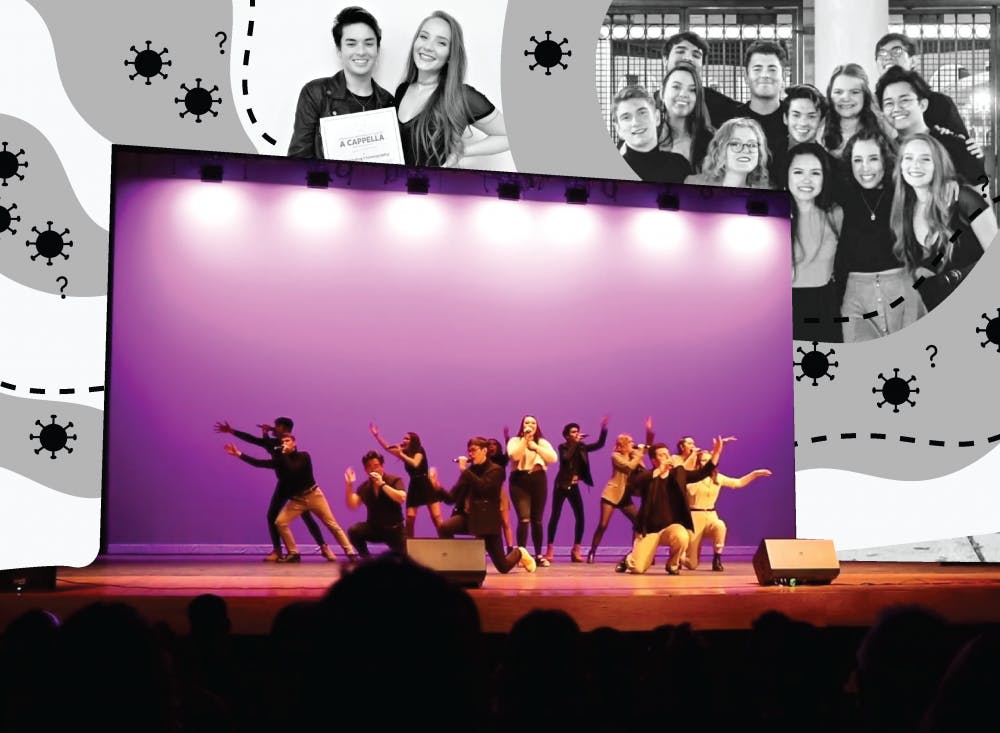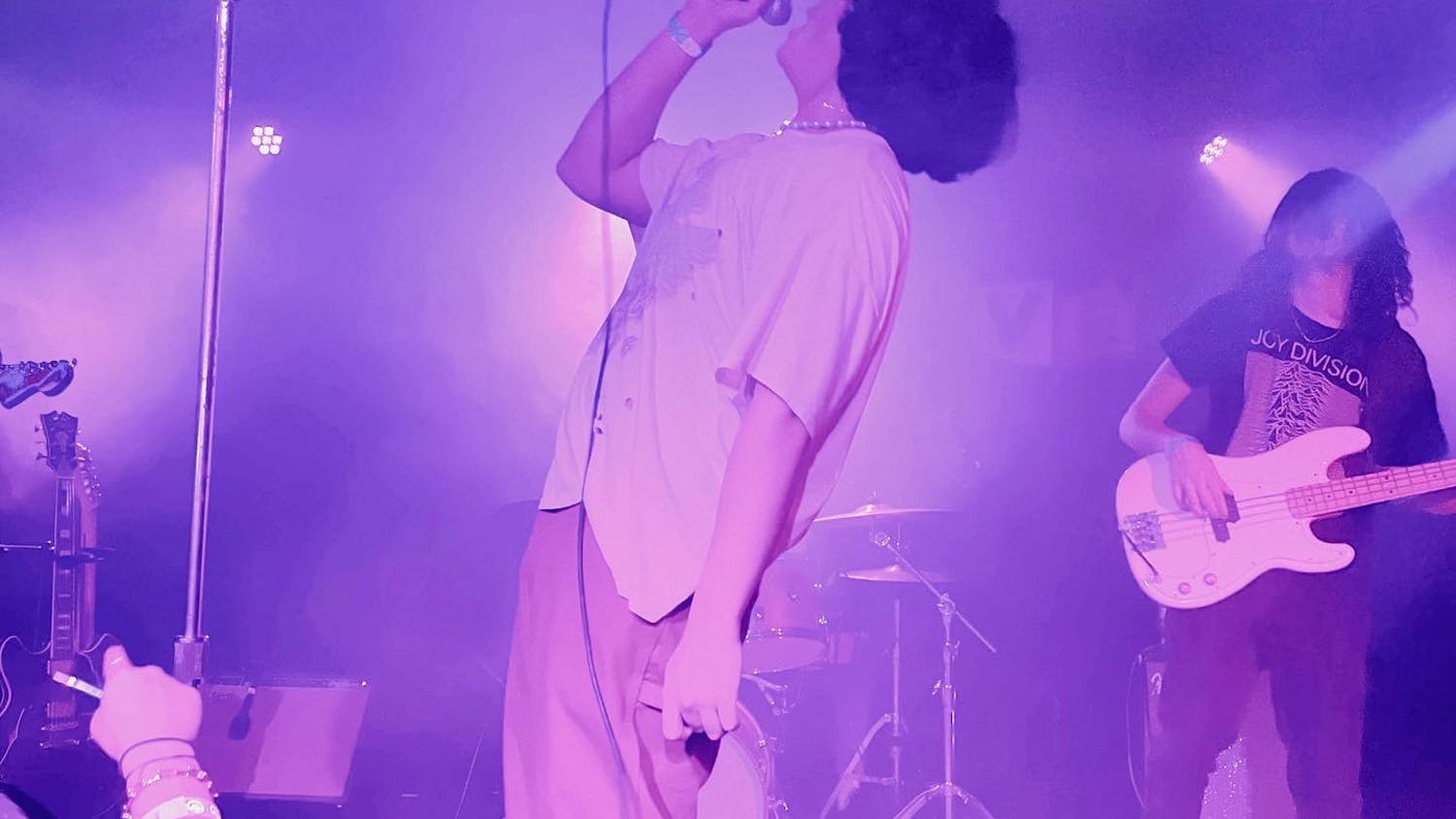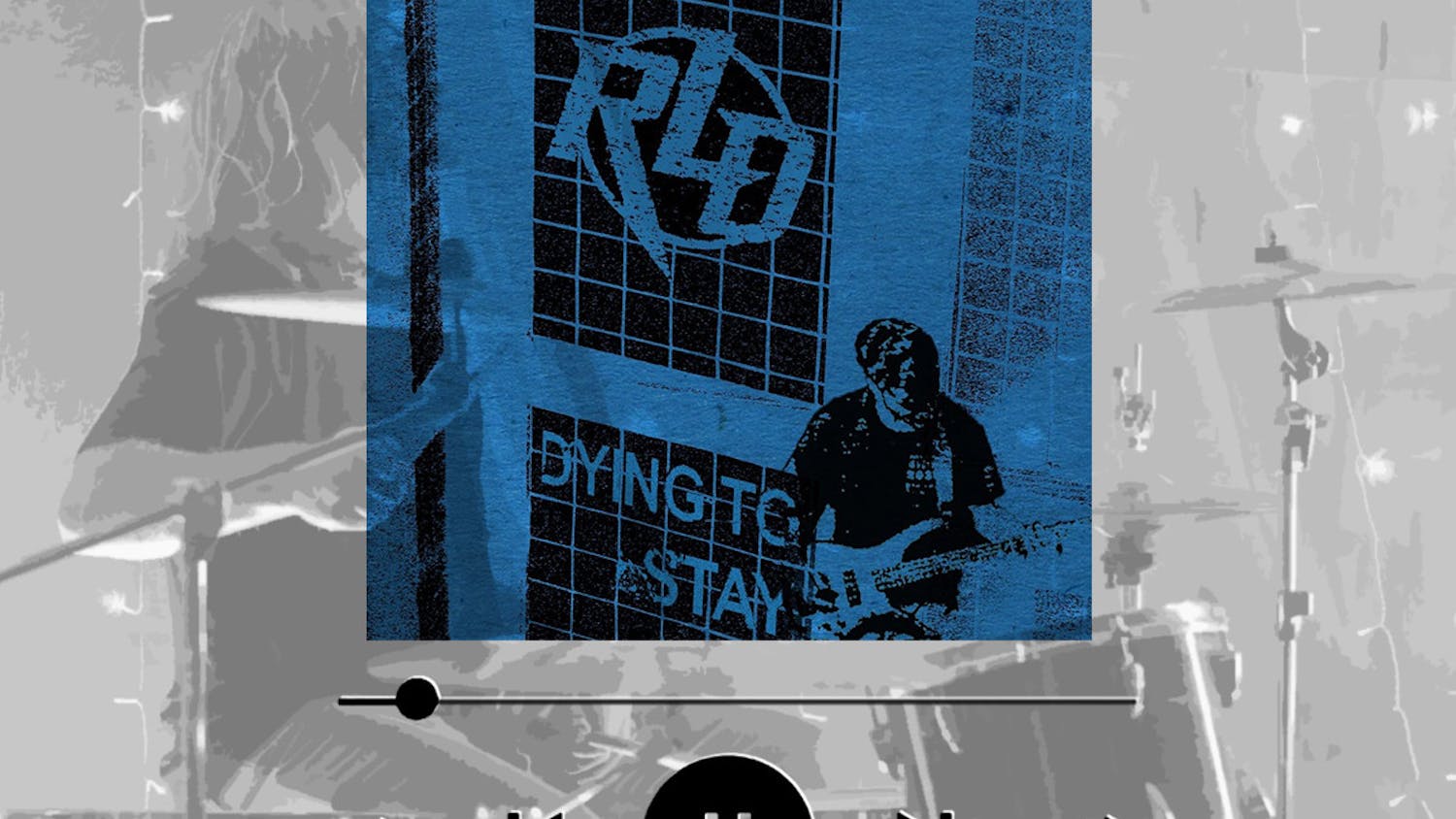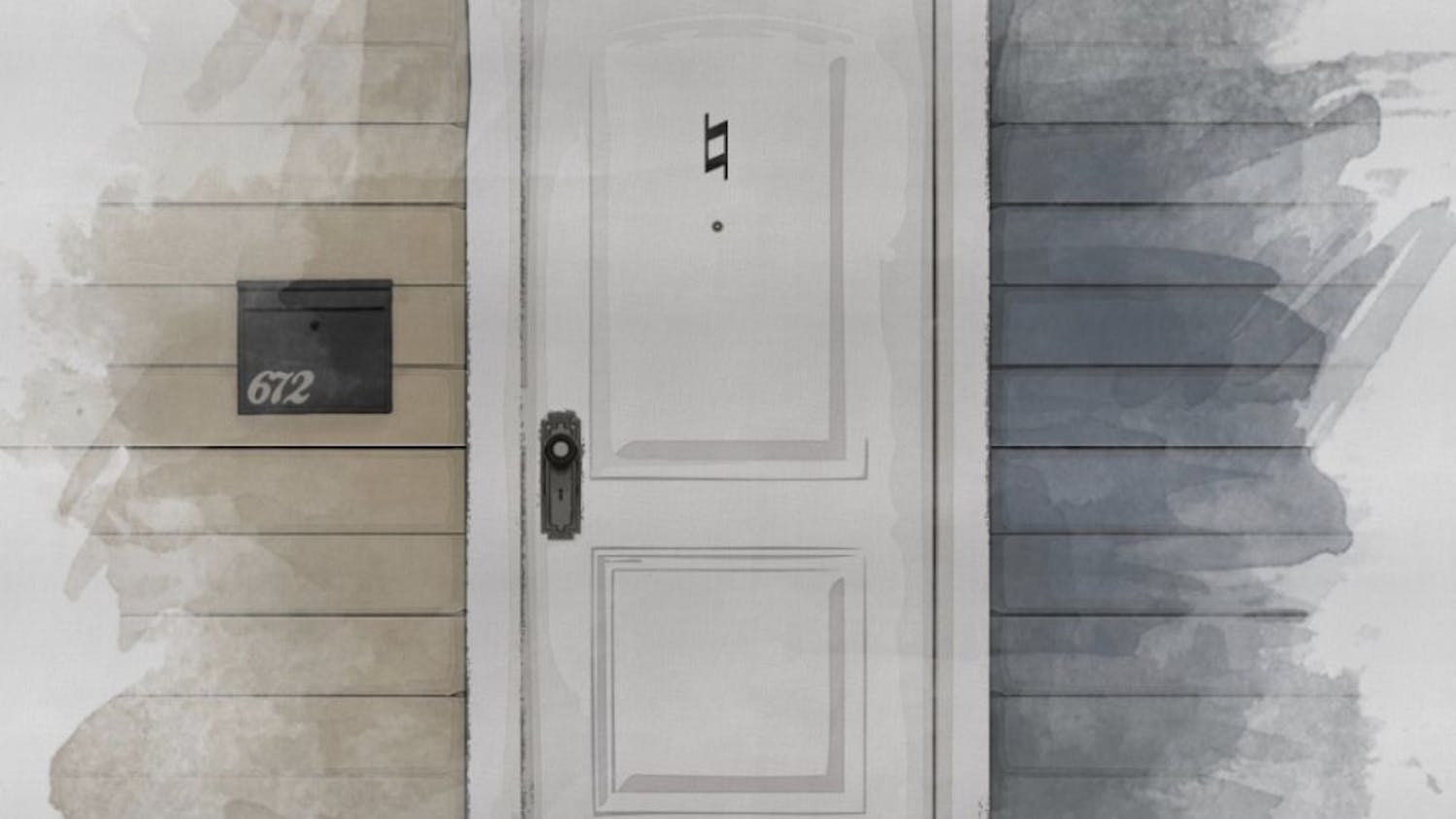Riding the high of a fine-tuned, beatbox-filled performance at the International Championship of Collegiate A Cappella, Maddie Crowley expected to resume preparation for an upcoming showcase after Spring break. She never imagined the next time they met, they’d be saying their goodbyes.
As the president of UF-based a cappella group, No Southern Accent, Crowley, a 21-year-old UF linguistics and education science senior had to consider the effect the COVID-19 pandemic would have on the group’s dynamic, she said. It was her job to ensure the wellbeing of the group — even if it meant being blunt about their canceled plans and indefinite hiatus, she said.
“We’re a pretty diverse group of individuals across gender identities, sexual orientations, class — so I was already preparing myself to respond to their needs,” Crowley said. “I like to think that I recognized the moment and tried to show up for my group as best as possible.”
Over the summer, Crowley has been able to connect virtually with others in the group, finalizing the positions of the current executive board while reminiscing over simpler times, she said. With Fall semester approaching, the hottest topic surrounding the group is its future — which, as of right now, does not include holding auditions for new members, Crowley said.
“We didn’t think it’d be conducive to the growth of our group, taking new members and not being able to spend time with them, or make music with them in person,” Crowley said. “It just ends up being not very feasible.”
No Southern Accent’s plan moving forward currently entails sharing a general interest form to see what its future prospects may look like, Crowley said. It’s frustrating, but the group’s current virtual status is starkly different to it’s usual intensity — allotting 15 to 20 hours for practice per week at times, she said.
In a cappella, the blending of each individual voice into one unified sound isn’t something that can be easily orchestrated by editing multiple recordings together, Crowley said. Lagging on Zoom, or even the absence of one member lowers the quality of a sound they’ve spent years honing, she said.
“Arts students are so reliant on our ability to connect with each other and be in contact with each other,” Crowley said. “Our ability to be a group relies on being able to see each other in person.”
For Madison Barrett, a 20-year-old vocal performance senior, considering the logistics of a virtual opera has proven to have its difficulties — but she isn’t willing to take any chances with her health.
As a vocalist, even the notion of contracting COVID-19 induces stress, she said. The ability to sing is linked to something deep inside you, and a disease like COVID-19 that overwhelms the lungs could be devastating to someone whose voice is their instrument, she said.
“Being able to feel the physical happenings of the breath moving through your body, how you articulate words and being able to be so precise with that,” Barrett said. “You don’t want to take any chances, especially when it can directly impact your career.”
Barrett has found more creative independence in her online lessons, but the lack of opportunities to perform has made preparation for her upcoming senior recital more difficult, she said. Practicing with a set recording is far more restrictive than collaborating with another musician, Barrett said.
“It’s hard to express what you want from the music,” Barrett said. “It’s very different from in-person where you’re connected with your accompanist, and you can change things based on how you feel in the moment.”
Though her choir class is currently arranged to have hybrid meetings this Fall, Barrett hopes there’ll be an option to move things online, she said. It’ll have an impact on the quality of her education, but she’s positive that her professors’ zest for teaching will keep her engaged in the material, she said.
“As a student, I’m constantly learning and constantly growing,” Barrett said. “Whenever a professor shows me their passion, that just makes me want to give them my time.”
When they would typically be performing, competing and meeting in person, the UF a cappella group No Southern Accent has had to make the switch to virtual interactions.






